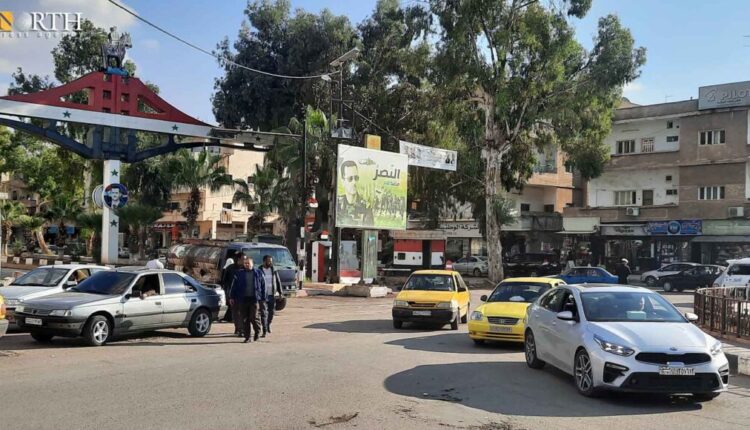By Ihsan Muhammad
DARAA, Syria (North Press) – Experts and researchers believe that the Islamic State (ISIS) is seeking to reorganize its ranks in southern Syria, taking advantage of the security chaos in the region. Furthermore, ISIS no longer finds a safe place in northeastern Syria.
It has been five years since ISIS left Daraa Governorate, southern Syria, as part of an agreement reached with Syrian government forces. At the time, ISIS lost its last stronghold in southern Syria after withdrawing from the Yarmouk Basin area near the shared border between Syria, Jordan, and the Israeli-held Golan Heights.
However, ISIS did not abandon Daraa, as it always seeks to establish a foothold by taking advantage of the fragile security situation and the rampant corruption among government forces stationed at military checkpoints. This is evident in the lax inspections conducted by government forces to allow the movements of ISIS militants in exchange for bribes.
A member of the government-affiliated local armed groups told North Press that his group joined in fighting against ISIS in the city of Nawa northern Daraa.
He said that they had observed several strangers frequenting a house in the northern neighborhood of the city. After monitoring them, it was discovered that they were ISIS members.
He added that the government-linked local groups in Nawa contacted them through intermediaries and negotiated with them to surrender. They refused, however.
The local groups besieged the house where the ISIS affiliates took refuge, and as a result of armed resistance, two members of the local groups were killed.
He added that the Syrian government forces did not provide any support or assistance to get rid of these ISIS militants. On the contrary, their movement was facilitated, and they resided in a neighborhood close to military posts of the government forces.
He reported that the Central Committee in the Western Region, responsible for settling disputes between locals and government forces, and the Eighth Brigade of the government forces provided support to the local groups the following day. The house was then raided, resulting in the killing of all ISIS militants.
Among the killed militants was Osama Shahada al-Azzizi, also known as al-Shaib, who held the position of ISIS’ leader (wali) in the Hawran region. In addition, one of the killed militants hailed from the al-Hajar al-Aswad area, while another originated from Quneitra Governorate in southern Syria.
The local armed groups in Daraa, in cooperation with the local population, constantly monitor movements of unfamiliar people in the area out of fear that they might be ISIS militants trying to infiltrate their hometowns, he said.
The man noted that ISIS militants reach Daraa by passing through military checkpoints of the government forces, which are spread throughout the entrances and exits of the governorate’s villages and towns.
Military analyst Brigadier Asaad al-Zoubi told North Press that ISIS affiliates in Daraa are either members of the extremist group, or affiliated with the government forces under this name.
The military analyst ruled out the possibility of ISIS establishing a new caliphate in Syria or elsewhere.
Al-Zoubi pointed out that the Syrian government forces arrested a significant number of ISIS militants after the battle of Yarmouk Valley in the summer of 2018.
A few days after the arrest, the first group was released and relocated to the eastern part of the Suwayda Governorate. Subsequently, another 100 members were released and tasked with carrying out assassinations, kidnappings, and inciting discord between Suwayda and Daraa, added the military analyst.
Al-Zoubi noted that months after the arrest, the third group was released and they are currently present in the Daraa.
Egyptian researcher on extremist groups, Mustafa Amin, informed North Press that ISIS’ insistence stems primarily from its desire to find a safe place in southern Syria.
Amin explained that ISIS feels besieged in the northeastern areas of Syria due to the blockade imposed by Iraqi forces along the border and the pressure exerted by the Syrian Democratic Forces (SDF) on the ISIS’ cells.
He noted that due to the government’s fragile control over Daraa, it is making efforts to eliminate ISIS, especially considering that Daraa was the epicenter of the Syrian war that started in 2011.
Furthermore, Daraa’s strategic location along the Jordanian border makes it an attractive target for ISIS to establish connections with drug smugglers operating on both sides of the border.
The Egyptian researcher ruled out the possibility of ISIS reviving its caliphate in neither Syria nor Iraq at present due to its inability to extend its influence over a wide geographical area.

